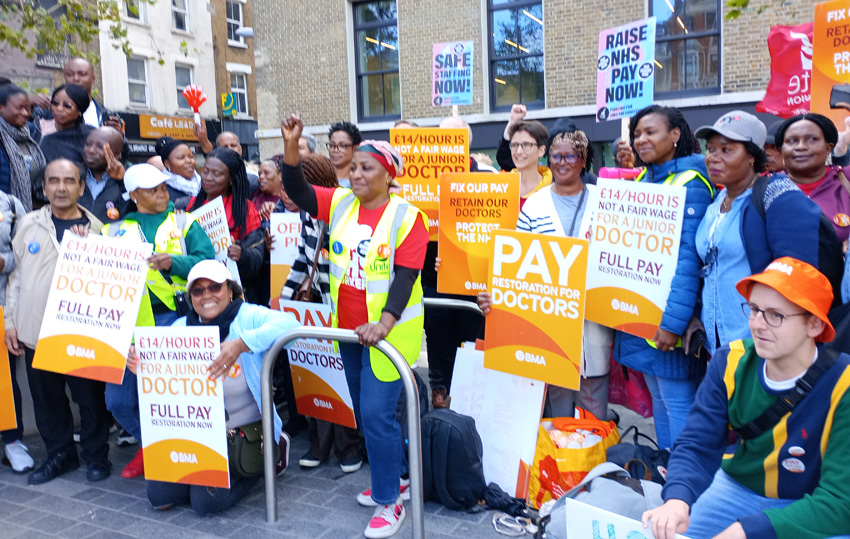PRIME Minister Starmer delivered a speech in a Surrey hospital yesterday morning describing his proposed transformation of the NHS into a largely digital service, with ‘community hubs’ replacing GP surgeries and hospitals.
Starmer claimed there is ‘record dissatisfaction with the NHS’, with ‘millions of people waiting on waiting lists’.
However, he continued: ‘A system like ours, with vast amounts of patient data, with scale, with the extraordinary resilience of our NHS staff, is well placed for the AI revolution in healthcare.
‘Trust me that is coming. Britain is a world leader, so we can do this. But first we must confront the reality of what is needed.
‘The NHS can’t become the sort of national money pit. Working people can’t be expected to subsidise the current level of care with ever rising taxes. That is the price of ducking reform and I won’t stand for it.’
He went on: ‘This is the year we role up our sleeves and reform the NHS, a new era of convenience in care, faster treatment, patients in control, an NHS fit for the future…
‘We will shift treatment away from hospitals and deliver more care in people’s communities and their homes…
‘Another game changer will be community diagnostic centres. We will open more of them. They will be seven days a week, 12 hours a day…
‘We will also let patients with long-term conditions monitor themselves at home. Give them the technology to do that. That will cut half a million appointments, so that we can focus our investment on what will actually cut waiting times.
‘Money wasted on inefficient care has to stop because we can’t afford it. Artificial intelligence will help us here as well.
British Medical Association chair Professor Philip Banfield responded: ‘If funding for the NHS had maintained what it was under the previous Labour government we would have been £40 billion up and therefore we are reflecting how the NHS has been run-down.’
He was asked: ‘Do you not feel that the government is offering any help for the development of these new social hubs and community hubs for example? How will they be run? What do you think?’
Professor Banfield replied: ‘The reality is that we just don’t have the staff to run such hubs seven days a week, twelve hours a day and you’ve got to be very careful because money will disappear very quickly if we drive some of that service into the private sector. And of course, it’s already proving difficult to retain staff in the NHS.’
He was asked: ‘Isn’t it a sensible use of resources, if there is a private gynaecologist sitting in a hospital with spaces on her list for the day, is it not best that people are taken off the NHS waiting list and seen there to get them through the system quicker?’
Professor Banfield replied: ‘Well, that’s a contradiction. Most doctors practicing in the private sector also work within the NHS and it would be far cheaper to pay them to service and treat patients in the NHS.’
Royal College of Nursing (RCN) General Secretary and Chief Executive Professor Nicola Ranger, said: ‘Patients are waiting too long for treatment and modernisation in the NHS is needed. But the missing link in all of this is the nursing workforce.
‘Nursing is crucial to a better future for health and social care, but there are tens of thousands of vacancies across every part of the system and every region in England. We desperately need new investment in our workforce otherwise all attempts to improve patient care and modernise the NHS will never get off the ground.’
